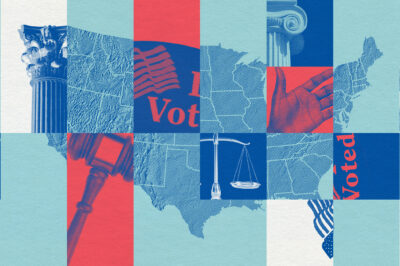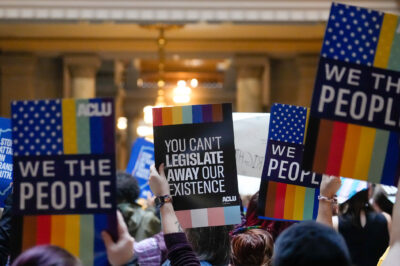The Sixth and 14th Amendments: who needs ’em?
People forced to go through our misdemeanor court system definitely don’t get them. At least that’s according to a new report from the National Association of Criminal Defense Lawyers (NACDL).
I’m pretty sure they’re right too. After all, can we really expect any public defender to provide adequate defense for any of their clients when he or she is covering 1,000 or more cases a year? I don’t think so. It isn’t the defenders’ fault they have to complete 10 or more cases a day just to keep up with their incoming case load. In many cities, the system dictates that a defender only has between 15 minutes and one hour total to work on any given case. That isn’t enough time to honor the rights guaranteed by the Sixth Amendment and results in the violation of 14th Amendment’s due process provision. These are serious civil liberties violations that run counter to the American idea of justice.
Of course, all of that only applies if a defendant is lucky enough to be assigned a lawyer in the first place. It’s common practice for busy courts to dissuade defendants from seeking counsel, and the system is no help either. The defendant is given the option of pleading guilty on the spot or staying in jail and waiting, sometimes months, for a lawyer to be assigned to them. Many defendants have financial obligations and can’t afford to sit in jail for weeks or months, but, if they can’t post bail, that’s exactly what they’ll have to do. They are forced to make a difficult decision between seeking justice and getting out quickly. Most choose to get out quickly.
God help anyone forced to make that choice.
The sad truth is that our public defenders are overworked and underpaid. This results in serious civil liberties violations that impact the indigent, poor, and minority communities particularly hard.
More money would fix a lot of the misdemeanor court systems problems. It would allow public defenders offices to hire more lawyers, pay them better, and offer adequate training. Unfortunately, money is hard to come by these days, and many public defenders offices are receiving budget cuts instead of budget increases. And even if money suddenly became abundant, it wouldn’t solve the court’s structural problems that push defendants to plead guilty.
The NACDL report outlines many solutions beyond just increasing budgets. Some of them would even save money.
One notable cost-saving idea is lowering public defenders’ misdemeanor case load by removing the number of crimes that require a court appearance. There is no reason riding a bicycle on the sidewalk, feeding the homeless, sleeping in a cardboard box, or peeing in public should require someone to spend time in jail and court. Locking people up and occupying the courts for any of these offenses is an enormous waste of public money. Several states have made moves to remove jail sentences from many nonviolent misdemeanors like these. The result is that there are fewer cases going through the court system and fewer people in jail. Any reduction in the case load of the public defenders will increase the amount of time they can spend on their remaining cases, and is a positive step toward restoring the civil liberties of everyone in the misdemeanor court system.
The problems facing the misdemeanor courts and the solutions to those problems are far too numerous and complex to fully detail here. For more information on the issue and to read more about the potential solutions please check out the NACDL’s report.



